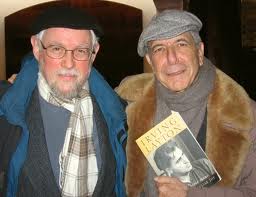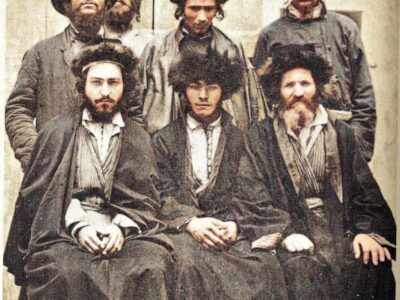One needs a “strong sense of perseverance” to be a poet, says Seymour Mayne, the Ottawa professor and wordsmith whose recent slim volume September Rain (Mosaic Press) is the 29th book of poetry he’s published since 1964 — “ken eina hora, almost 41 years ago.”
Educated at the Talmud Torah in his native Montreal, Mayne visited the Jewish Public Library often in the ‘50s and absorbed much modern Jewish writing. In the ‘60s he studied Canadian literature at McGill, learning from and crossing paths with the likes of Louis Dudek, Irving Layton, Leonard Cohen and many other luminaries.
Today his own star has risen considerably in the sphere of Canadian lit. Much anthologized and translated, he has developed followings in Spain and Israel as well as in Canada. Several of his humourous short stories have been published in Spanish translation in Spain, where he’s been likened to “a Canadian Woody Allen,” and four of his poetry volumes have appeared in Hebrew translation.
“I’ve been writing and publishing since I was a teenager,” he declared recently over a cup of coffee at the Nadal Jewish Community Centre in Toronto. “If you ask me why I do it, I say I have a need to shape words into utterances that on the one hand give people a degree of pleasure, and on the other hand communicate something to them about the significance of everyday life.
“Sounds old-fashioned and it is,” he continued. “You want to give people pleasure at the same time as some kind of insightful illumination into experience. And if you can do both, then it’s a wonderful miracle that suddenly appears on the page.”
Mayne has produced that particular miracle on the page enough times that Arnold Ages, the distinguished southern Ontario professor and literary critic, proposed in an essay last fall that he should be considered for the Nobel prize in literature, potentially joining the ranks of Jewish winners like S.Y. Agnon, Elias Cannetti, Imre Kertesz and Nellie Sachs.
Among other qualities, Ages cited Mayne’s “attachment to and love of pure poetry, Jewish tradition, the Hebrew Bible and Canadian Jewry,” adding that “Mayne has transformed that which is dear to his heart into a universal poetic language.”
Last year an Italian university student wrote a thesis dissertation on Mayne and his writing, “so I’ve been pre-embalmed while living,” the University of Ottawa professor of English joked.
The poems in September Rain are divided into four sections, each with its own theme. The first poem, “Ottawa Dozes Amidst Its Leafy Trees,” signals a “seasons” theme as well as Mayne’s deep Canadian sensibility. The other sections deal respectively with Spain, Israel and his deceased parents.
The writing is light and airy, rarely seeming to fill the page, but often soaring through a simple poetic loftiness. Jewish and Biblical stories and images pop up recurrently throughout, as does the universal imagery of death.
“I close the book with a poem that draws on the passing of the seasons, with the underlying theme of renewal,” he said. “And by that I mean personal renewal, seasonal renewal, cultural renewal . . . . Regarding the overall theme of the collection, I’m going to tie everything together in one word: the key word is ‘renewal.’”
Indeed, the collection is bursting with images of death and new life, as in the poem “Hail,” which opens with the memorable line: “Hail peppered the air like seed / as you were lowered / below the frost line.”
Having branched into short fiction in recent years, Mayne contributed a story to the latest issue of Parchment; it’s light and humourous. But he disclaims any aspiration to write a novel. “One must have a gene to be a novelist,” he said. “I think my DNA included the gene for poetry, the gene for short fiction and the gene for the essay, in that descending order. I don’t have the gene for the novel.”
Still, he seems as prolific as ever, with several new volumes of various sorts in the works, both at home and abroad. “As a writer, it’s the promise of renewal that keeps me writing,” he said. “It also keeps me optimistic about the Jewish future. Everything cycles, and hopefully for the better.” ♦
© 2005







